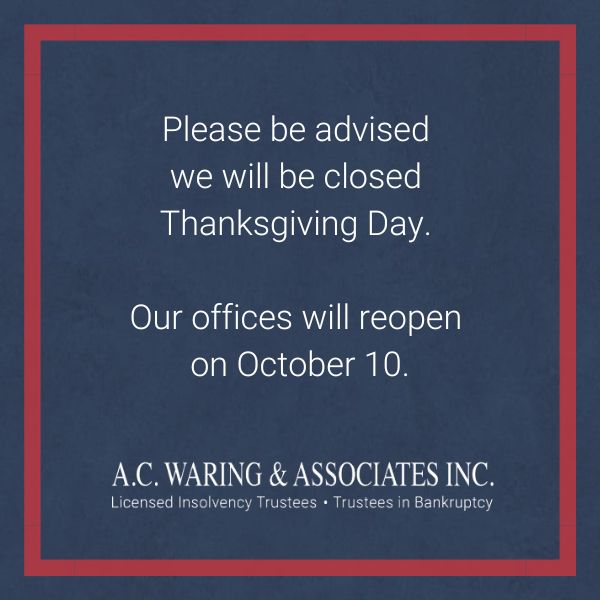Advice from Trusted Licensed Insolvency Trustees in Edmonton
When faced with a mountain of debt, any type of help seems welcome. Scour the internet for options to help you get out of debt and suggestions like extreme couponing, eating beans and rice, or debt consolidation loans pop up. Not all tips are the same. Yes, it is good to stop using your credit cards and save for items you want. It is a solid idea to buy a dependable used car rather than suffer the depreciation of a brand new one. Cutting your grocery bill is helpful as well.
What do you do when the debts are numerous and juggling all the payment due dates becomes a blur? Many Canadians consider an equity loan on their home or a debt consolidation loan. This option might make sense from the perspective of ease and convenience. There is only one payment to remember, and sometimes the interest rates are lower than the collective of credit cards used before. If your credit score is healthy, this might be an option for you to consider.
For those with poor or no credit, a debt consolidation loan may be out of the realm of possible solutions to their dilemma.
Why You Might Want to Avoid Debt Consolidation Loans
Everyone’s circumstances are different, but when you find yourself in financial distress, you have to keep in mind that there are reasons you got there. Sometimes it may be the loss of a job or business. It could be an illness. Often, it is excessive and irresponsible spending habits.
Putting all your credit cards under one umbrella alleviates the juggling of payments. However, you may be tempted to use those now open credit lines, thereby, digging a deeper pit from which you might not recover.
Common Reasons Canadians Are Unable to Get Debt Consolidation Loans
Even if you have decided that you want to go the route of consolidating your unsecured debt with a bank loan, it may not be as easy as you think. There is still the process of convincing a financial institution you can handle it. Here are some reasons why Canadians may not be able to obtain this kind of relief:
- Lack of Security or Collateral: Financial institutions want to ensure they will get their money back if something goes wrong. They will often ask for something of value to be used as collateral or security. If you do not have either, you might find yourself opting for another credit card or monies from a finance company. Both options have exorbitant interest rates.
- Late Debt Payments: Struggling to pay your bills can affect your credit score and show up on your credit report. High balances can prove an issue as well. All these factors may prevent you from obtaining the additional funding you seek.
- Low Income: Unlike credit cards, a consolidation loan has a fixed term for repayment. In general, the payments are more than what you are paying on your credit cards. If paying the minimum payments on all of your credit cards is stretching your budget now, a loan may be unobtainable.
- Lack of Credit History: This can be for a couple of reasons. You may not have been using credit under your own name for a while; therefore, there is not enough history to show how responsible you are with debt. Another issue arises if you do not use the credit you already have available to you. Hiding a credit card in your drawer “just in case” will not show a lender if you are responsible with your credit.
- Too Much Existing Debt: Banks and credit unions do have their limits. Even though your motives may be laudable, if your overall debt load is more than 40% of your gross annual income, they probably will not lend you the money.
Take Back Control with Help from a Licensed Insolvency Trustee
What options do you have if you are turned down for a consolidation loan? There are other solutions available including credit counselling and consumer proposals.
A credit counsellor will sit down with you and evaluate your financial position and debt situation. They will go over all your income and expenses and offer advice and solutions for dealing with your debt.
For consumer proposals, a licensed insolvency trustee works as an intermediary between you and your creditors. The trustee will collaborate with you to develop a plan that is designed to get you back onto solid financial footing. Then they present your proposal to your creditors. The end goal is to settle on a repayment plan that satisfies both parties. If no settlement can be reached, then other options will be discussed.
Contact A.C. Waring & Associates in Edmonton to Get DebtFree®
End the frustration and strain of financial overload. Get help from the trusted professionals at A.C. Waring & Associates Inc. We understand your situation and can help you deal with the stress that comes with financial troubles. We are ready to help you get back to enjoying your life again.
Contact our Debt Help Line toll-free at 1-800-463-3328 or main 780-424-9944 today to get timely guidance and new hope for your financial problems.




